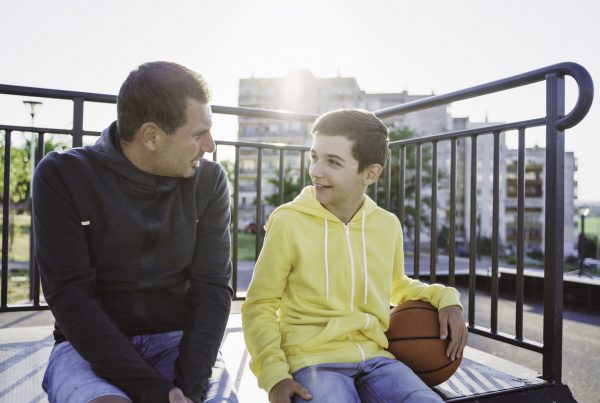Binge drinking, marijuana, hallucinogens, and depressants like benzodiazepine still rank at the top of the list of common substances for experimenting teens. But how dangerous is drug experimentation, and what should you do if your teenager is doing drugs? Let’s take a look at different approaches to teen drug use.
We read time and time again that today’s youth are using fewer drugs than previous generations. Teens today seem to wait longer before experimenting with drugs, or don’t use them at all.
On the other hand, there are frightening statistics on how drug use has sharply increased after the pandemic, and how opioid overdoses have skyrocketed in last few decades, even from non-opioid drugs (due to the use of fentanyl as an additive).
Knowing what teens are most likely to experiment with is important. While half of surveyed teens have experimented with a drug before, the breakdown of these drugs heavily skews towards alcohol and marijuana. While alcohol and cannabis are far and away the most commonly abused drugs by teens, about 7.5 percent of teens have tried a hallucinogen, 7 percent of 12th graders have tried depressants (such as benzodiazepines or tranquilizers), and 5.9 percent have tried LSD.
Drugs like heroin, methamphetamine and cocaine are rarely a teen problem – less than one percent (and in heroin’s case just 0.02 percent) of teens have tried these drugs.
It can be immensely worrying to find out that your teen has been experimenting with drugs – especially more dangerous substances, such as prescription pills. Even seemingly legitimate prescription drugs can be sourced dubiously and laced with additives to make them more potent, and more deadly. Furthermore, today’s strains of cannabis are far more powerful than previous generations, due to the selective cultivation of marijuana with higher concentrations of THC.
However, let’s remember that not all cases of drug exposure will lead to addiction. Yes, early drug use correlates with substance use problems later in life, as teens that start using drugs early on often share other life factors that make them more susceptible to addiction. But your first thought when finding out that your teen has had a beer or tried weed shouldn’t be to picture them as a struggling addict. There are still many steps and opportunities for intervention before things get that bad. Let us dial back a bit and explore the issue step by step.
Why Do Teens Experiment with Drugs?
Teens continue to try drugs the same reason other generations of teens have tried drugs:
- Due to substance abuse in the family.
- As an extreme form of escapism, or to cope with difficult circumstances.
- Because it is expected or normalized socially, such as alcohol consumption and binge drinking.
- As an act of defiance, or rebellion against authority.
- Sheer teenage curiosity.
There are risk factors that greatly increase a teen’s likelihood of continuing to use drugs, rather than looking for a novel experience. These include:
- Family history of addiction (a predisposition toward drug use).
- A history of mental health issues (depression and anxiety correlate more heavily with substance use).
- A history of self-harm without suicidal intent.
- Accessibility to drugs (teen substance use problems are more common in areas where it is easier to find illicit substances, or it’s easier for teens to acquire alcohol).
- Being part of the LGBTQ+ community (many teens in the LGBTQ+ community face rising intolerance and greater social stigma).
- Early experimentation (earlier exposure to addictive drugs can make addiction more likely).
- Socioeconomic status (poverty is a risk factor for drug use).
If you’ve found out that your teen has tried a drug before, focusing on protective factors can reduce the likelihood of an addiction. This includes:
- Avoiding drug use at home, including drinking and smoking.
- Making your personal stance on drugs clear.
- Improving your teen’s knowledge of the long-term effects of drug use, both physical and mental.
- Helping your teen deal with their stressors, including symptoms of anxiety or depression.
- Providing support for your teen’s identity.
- Helping them improve their relationship within the community or find positive social relationships together.
Does My Teen Have a Drug Problem?
Recognizing the difference between trying out drinking and a serious problem is a matter of observing changes in your teen’s behavior and watching out for certain red flags. A physician’s diagnosis is still needed to determine whether a teen has a substance use disorder – but parents and friends can help screen for addiction by keeping an eye out for changes such as:
- A loss of interest in old hobbies.
- Physical signs of drug use, such as bloodshot eyes, slurring, frequent hangovers.
- Physical evidence of drug use, such as drug paraphernalia, hiding alcohol, and drug stashes.
- Lying about where they’ve been, or what they’ve been doing.
- One or more unsuccessful attempts to stop using.
If your teen’s experimentation has become habit-forming, then it’s important to take immediate action. Talk to your teen about considering a treatment program to help them quit drinking or stop using drugs.
If your teen doesn’t recognize that their behavior has become problematic, talk to a professional about staging an intervention. Interventions help people realize that they’ve much farther along on the path to addiction than they might have realized, and that they need serious help to stop.
Working with your teen to find a solution can help. Offer to help them look for treatment options, take them to appointments, and support them throughout the recovery process.
If you or someone you know is struggling with a substance use problem, it’s time to get professional help. Visions offers residential care programs for teens with drug problems. We also offer individualized treatment plans for teens to continue their recovery progress, and work on their sobriety skills. We integrate different treatment modalities to provide a holistic treatment plan for teens, utilizing talk therapy as well as experiential therapies, and the medical expertise of our staff. Learn more about our modalities and residential treatment programs by contacting us today.








